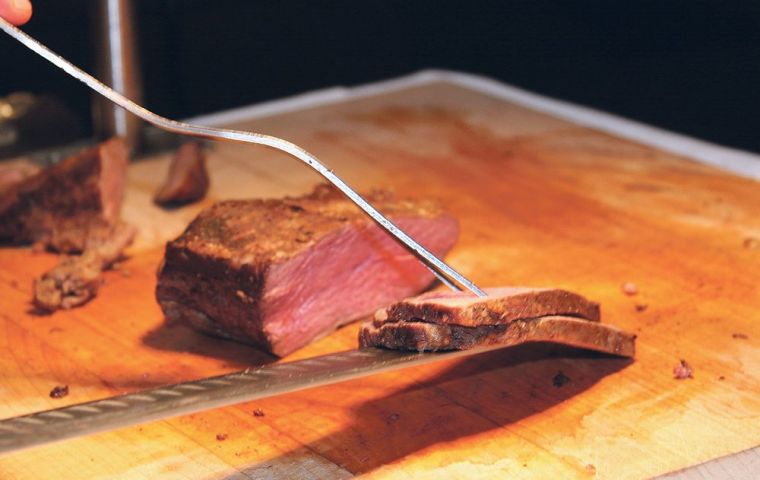MercoPress. South Atlantic News Agency
China suspends beef imports from Canada because of atypical case of mad cow
 China, South Korea and the Philippines acquire very modest percentages of Canadian beef which goes mostly to the US and Mexico
China, South Korea and the Philippines acquire very modest percentages of Canadian beef which goes mostly to the US and Mexico Several Asian countries have suspended the import of Canadian beef, following a case of mad cow disease. China, South Korea, and the Philippines have temporarily halted imports of Canadian beef where an “atypical” case of bovine spongiform encephalopathy (BSE), commonly known as mad cow disease, was reported.
An atypical case is rare and happens spontaneously, as opposed to classical cases caused by contaminated feed. The cow was euthanized on the farm in late December and did not enter the food or animal feed chain, the Canadian Food Inspection Agency announced.
“These types of suspensions with an atypical case should be lifted quickly,” said Dennis Laycraft, executive vice president of the Canadian Cattlemen’s Association. However the Asian countries only absorb a minimum percentage of Canadian beef, which is mostly exported (90%) to the United States and Japan. China is supplied mostly by Oceania and Mercosur member countries and only takes 6,5% from Canada.
But trade with China has not been without incidents. Last September, Brazil halted beef exports to China due to reports of two “atypical” cases of mad cow disease, a move contemplated in the sanitary protocols between the two countries. China lifted the ban three months later.
Despite three months of frozen commercial operations, Brazil managed to remain the world’s largest beef exporter.
Laycraft said that the distinction between classic and atypical, as is the case with Canada should limit the length of any beef export suspension. In effect the atypical case refers to an eight year old meat cow in an Alberta farm.
While Laycraft didn’t go so far as to say there is frustration on the part of CCA regarding the beef import suspensions, he did say those actions differ from how other nations view atypical cases of BSE
“Obviously we’d prefer that like the rest of the world they recognize this as atypical and allow trade to continue uninterrupted,” he said. “I think gradually we’re getting there. There are fewer and fewer instances of this happening.”




Top Comments
Disclaimer & comment rulesCommenting for this story is now closed.
If you have a Facebook account, become a fan and comment on our Facebook Page!